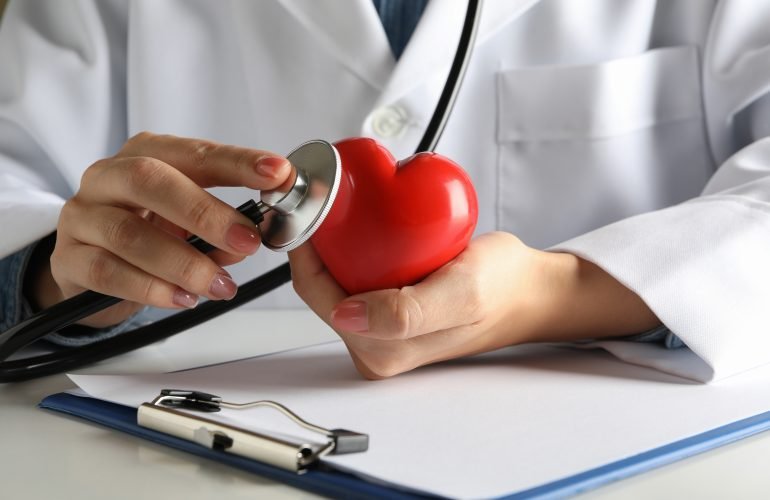Heart disease is a leading cause of health complications and mortality worldwide. Many people ignore early symptoms, assuming they are harmless, but recognizing these warning signs in time can prevent life-threatening conditions like heart attacks, heart failure, and stroke. At Horizon Naupada, we believe in spreading awareness about heart health and encouraging early medical intervention.
If you or someone you know experiences any of the following symptoms, seeking medical attention immediately can make all the difference. Let’s explore the top 10 warning signs of heart disease you should never ignore.
1. Chest Pain or Discomfort
One of the most common signs of heart disease is chest pain, also known as angina. It can feel like pressure, tightness, squeezing, or burning in the chest. Some people describe it as a heavy weight pressing down on them.
Chest pain may occur:
- During physical activity or emotional stress
- While resting
- In episodes that last a few minutes before subsiding
Not all chest pain is related to the heart, but if it is persistent, severe, or radiates to other areas, it requires immediate medical attention. It could be a sign of coronary artery disease (CAD) or an impending heart attack.
2. Shortness of Breath
If you feel breathless even with mild exertion or while at rest, it may be due to heart disease. The heart and lungs work together to supply oxygen to the body, so difficulty breathing could indicate an issue with blood circulation.
Shortness of breath may be a symptom of:
- Congestive heart failure, where the heart struggles to pump blood efficiently
- Blocked arteries, reducing oxygen supply to the heart
- Heart valve disease, preventing normal blood flow
Seek medical help if breathlessness is sudden, worsens over time, or occurs with chest pain or dizziness.
3. Fatigue and Weakness
Feeling tired all the time, even after getting enough rest, may be an early warning sign of heart disease. The heart’s inability to pump blood effectively means less oxygen and nutrients reach your organs and muscles, causing fatigue.
Chronic fatigue may indicate:
- Heart failure
- Blocked arteries reduce blood flow to the body
- Anemia linked to heart problems
If you notice unusual exhaustion that doesn’t improve with rest, consult a doctor for a heart evaluation.
4. Irregular Heartbeat (Arrhythmia)
A racing, fluttering, or irregular heartbeat can be a sign of heart disease. Occasional palpitations are normal, but frequent or severe irregularities may indicate an underlying problem.
Common causes include:
- Atrial fibrillation (AFib) – A type of irregular heartbeat increasing stroke risk
- Heart valve disorders
- Electrolyte imbalances affecting heart rhythm
If your heart feels like it’s skipping beats or racing uncontrollably, consult a doctor to rule out serious issues.
5. Dizziness or Lightheadedness
Frequent dizziness, lightheadedness, or fainting could be a sign of reduced blood flow to the brain, often caused by heart disease.
Potential causes include:
- Low blood pressure, leading to sudden dizziness when standing up
- Heart arrhythmias, disrupting normal circulation
- Heart failure, reducing oxygen supply to the brain
If dizziness is accompanied by chest pain, palpitations, or confusion, seek medical attention immediately.
6. Swelling in the Legs, Ankles, or Feet
Swelling in the lower extremities (edema) may indicate fluid retention due to heart failure. When the heart isn’t pumping efficiently, blood backs up in the veins, causing swelling.
Signs of heart-related edema:
- Swelling that worsens as the day progresses
- Indentations in the skin after pressing on the swollen area
- Unexplained weight gain due to fluid buildup
Persistent swelling should be evaluated by a doctor, especially if it’s accompanied by shortness of breath or fatigue.
7. Pain in the Shoulder, Arm, Neck, or Jaw
Heart-related pain isn’t always felt in the chest. Sometimes, a heart attack causes referred pain that spreads to the left arm, shoulder, neck, jaw, or back.
This pain may:
- Start gradually or suddenly
- Feeling dull, aching, or pressure-like
- Worsen with activity and improve with rest
Women, in particular, may experience jaw pain instead of classic chest pain during a heart attack. If you have unexplained pain in these areas, consult a doctor immediately.
8. Persistent Cough or Wheezing
A chronic cough or wheezing, especially if it produces pink or white frothy mucus, could indicate heart failure. This happens when fluid builds up in the lungs due to poor circulation.
Other symptoms that may accompany a heart-related cough include:
- Shortness of breath
- Swelling in the legs
- Fatigue and weakness
If your cough persists despite treatment for respiratory conditions, get your heart checked.
9. Cold Sweats or Nausea
Breaking out in a cold sweat for no apparent reason can be a sign of a heart attack. Many people mistake it for stress or overheating, but sudden, unexplained sweating should not be ignored.
Additional symptoms that may accompany cold sweats include:
- Dizziness and nausea
- Chest pain or discomfort
- Shortness of breath
If you experience these symptoms together, seek immediate medical care.
10. High Blood Pressure (Hypertension)
Uncontrolled high blood pressure (hypertension) is a major risk factor for heart disease. It puts extra strain on the heart and increases the risk of:
- Heart attack
- Stroke
- Heart failure
Symptoms of dangerously high blood pressure may include:
- Severe headaches
- Blurred vision
- Chest pain or difficulty breathing
Regular blood pressure monitoring and lifestyle changes can help reduce risks.
Conclusion
Heart disease can develop silently. Paying attention to these warning signs can prevent serious complications. If you experience any of these symptoms, don’t wait—early diagnosis and treatment are key.
At Horizon Naupada, our experienced cardiologists in Thane provide advanced diagnostics, personalized treatment plans, and preventive heart care.




